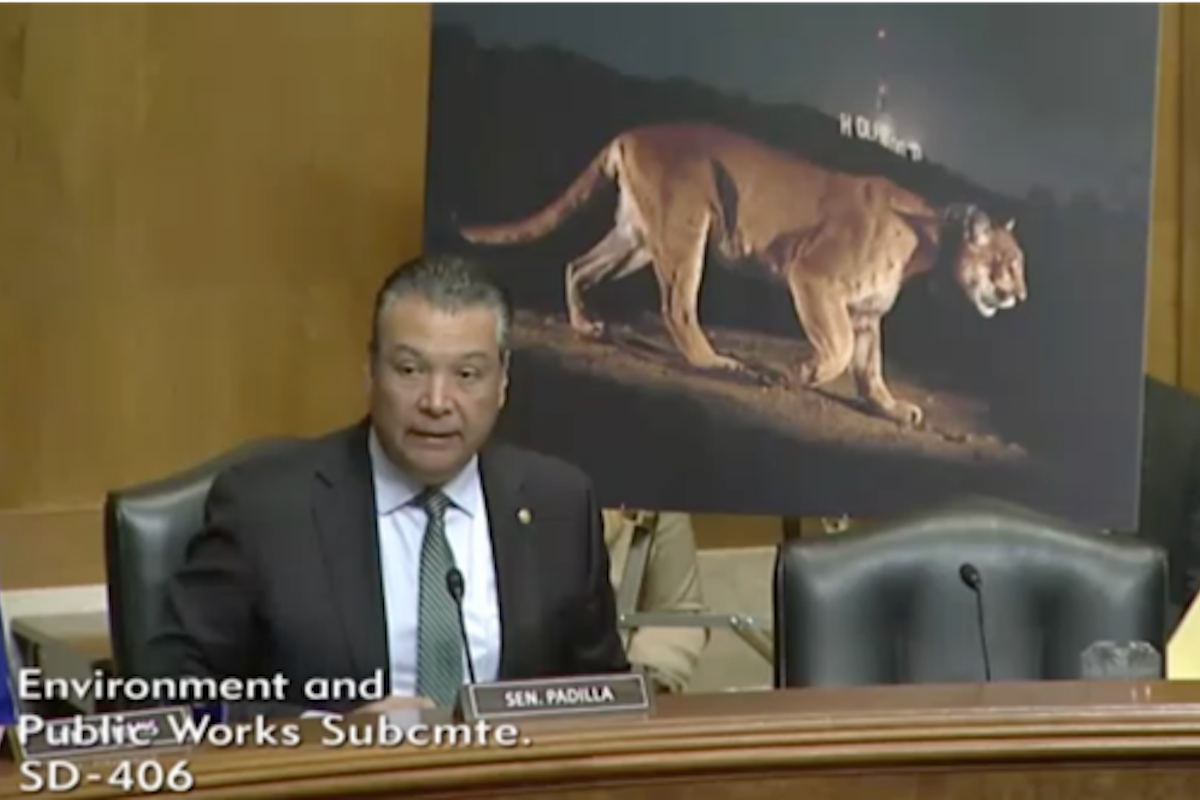Wildlife Migration and Movement Hearing on the Hill
Senator Alex Padilla Focused on Connectivity, Protecting Wildlife, Models for Conservation

Senator Alex Padilla is calling for bipartisan support for a bill to increase federal funding for research and projects related to wildlife corridors and conservation efforts across the United States. During a Senate environmental subcommittee hearing on November 14, Padilla focused on the issue of wildlife corridors, which connect wildlife to different habitat areas and allow them to avoid vehicles.
In Santa Barbara, residents have been pushing for Caltrans to create a wildlife corridor near Gaviota for several years. A study began in 2022 in the area of the U.S. 101 at Gaviota Pass to improve passageways for wildlife, due to the area’s high number of wildlife deaths on the highway.
The study was completed according to schedule and a location suitable for wildlife crossing that would also serve to reduce vehicle collisions was identified, according to Mitch Dallas, a senior environmental planner with Caltrans. Dallas also stated that a proposal was submitted to the federal government for a $10 million grant to fund the project.
Once a stakeholder meeting is convened, more information regarding the wildlife corridor at Gaviota and location specifics will be available. “Our team is working toward getting info out to the stakeholder group about scheduling the next meeting. Our hope is to have good news to share about the grant program competition at the next stakeholder meeting,” Dallas said.
The bill under discussion during Padilla’s hearing — titled “Challenges and Opportunities to Facilitate Wildlife Movement and Improve Migration Corridors” — would help to fund corridors such as the one proposed at Gaviota through grants or other mechanisms.
The hearing’s goal was a discussion on the issue among the bipartisan members of the Fisheries, Water and Wildlife subcommittee, which Padilla chairs, of the Environment and Public Works Committee. Padilla was joined by various officials from the wildlife management and conservation sphere. They provided testimony on the importance of connecting wildlife to their habitats, ecological impacts, models for conservation, and bipartisan policy support for wildlife issues in the past.
“Conservation actions that allow migration corridors to remain open, such as the removal of fencing in critical locations or the addition of fencing in other areas to guide wildlife to safe highway crossings, are essential to maintain this ecological process that has occurred for millennia,” said Madeleine West, director of the Center for Public Lands at the Theodore Roosevelt Conservation Partnership, in her testimony.
Padilla emphasized not only the threats that wildlife face as a result of migration challenges, but also the human cost that accompanies animals trying to cross roads: “It’s estimated that wildlife-involved crashes kill more than 150 drivers every year in America,” Padilla said.
California was a particular focus of Chuck Bonham, the director of the California Department of Fish and Wildlife. He told the senators about the necessity of protecting the state’s biodiversity at a time where it has the “highest number of imperiled animal and plant species.”



